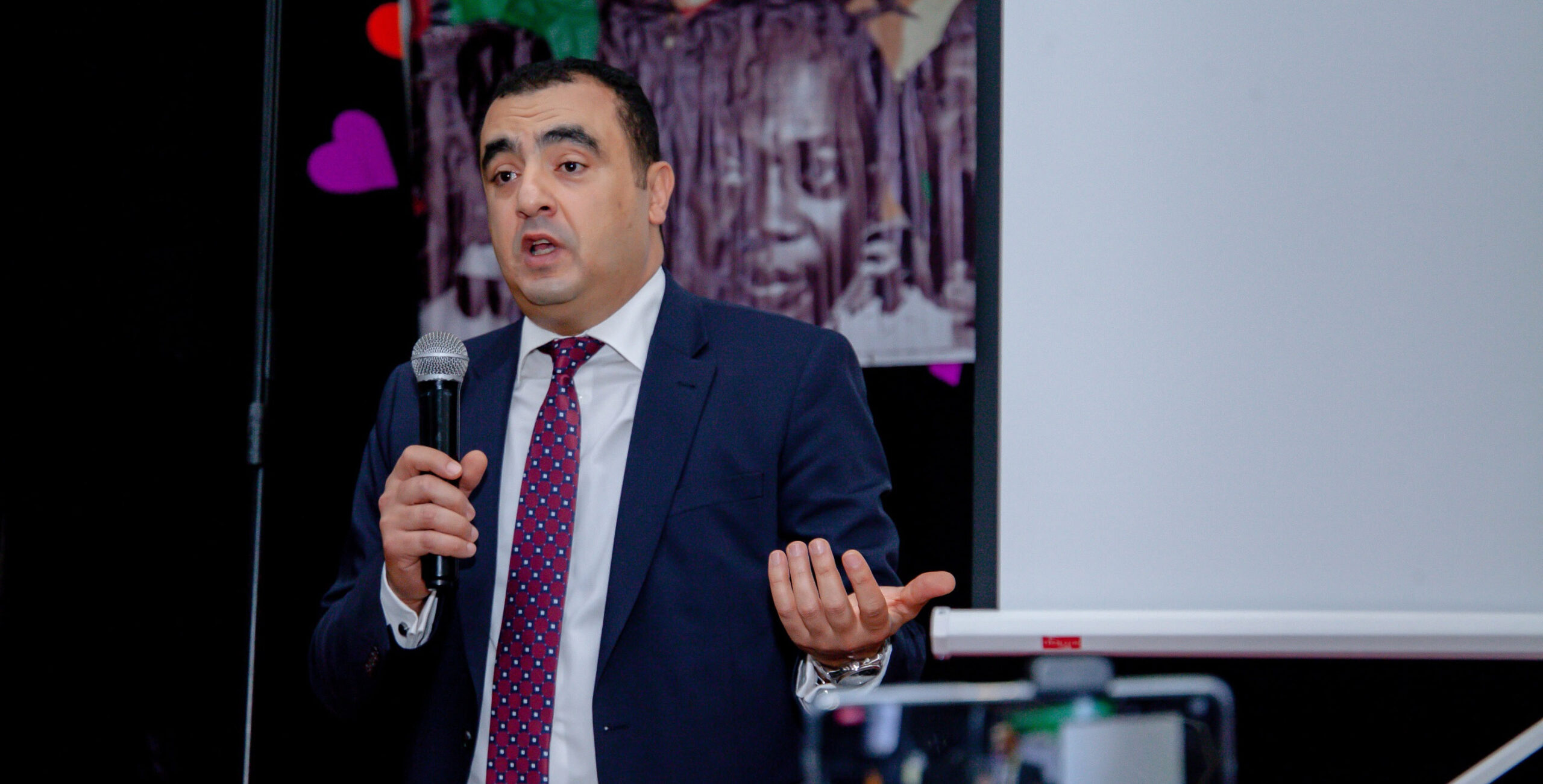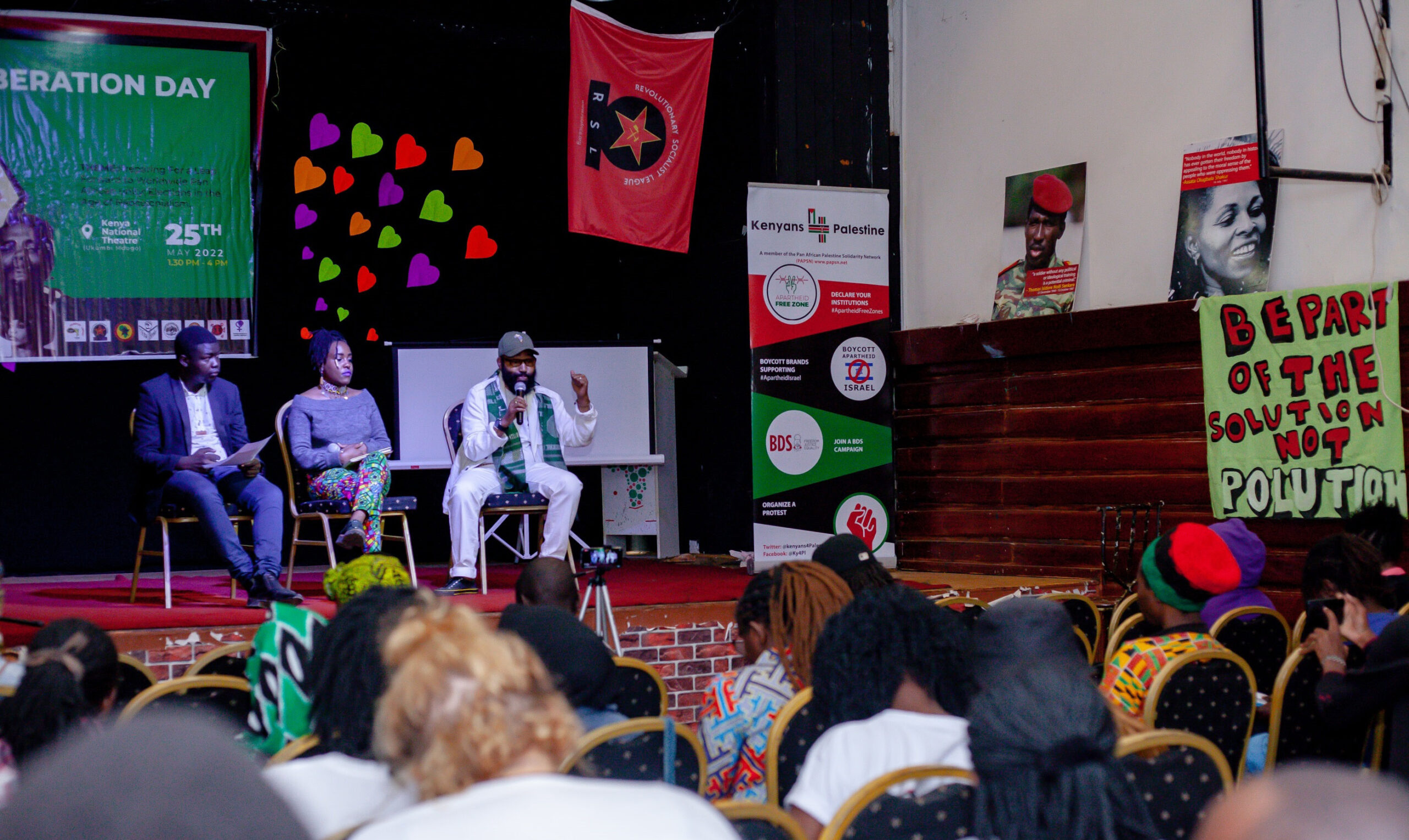Every year on May 25, the world commemorates African Liberation Day (ALD). ALD was first established by Kwame Nkrumah in 1958 during the first Convention of Independent States in Accra, Ghana. It was declared that the 15th of April would be designated as ‘African Freedom Day’ to commemorate the liberation movement’s success and to signify the African people’s commitment to be free from Western hegemony and exploitation.
African Freedom Day was then celebrated for the following five years to commemorate the advancement of liberation movements on the African continent until the establishment of the Organisation of African Unity (OAU) in 1963. It was at the OAU Summit meeting on May 25, 1963 that the African Freedom Day was renamed African Liberation Day and moved to every May 25th.
Today, African Liberation Day serves as a day to reaffirm our commitment to Pan-Africanism, the ultimate emancipation and unification of Africa under Pan-African socialism. ALD is a reminder that Africa has not really achieved its independence. The working people of Africa improve their awareness of legitimate struggles through their participation in ALD, and assert their participation in the global socialist movement. In 2022, there were three different ALD celebrations in Kenya organised by the Communist Party of Kenya (CPK), the Socialist Leaning Groups2 and the Pan-African Congress. The Socialist Leaning Group’s celebrations, which took place at Ukumbi Mdogo, Kenya National Theatre, were live-streamed on Facebook. Some themes that stood out from the discussions were solidarity against Zionism and imperialism, the importance of people’s education, and parliamentary elections in the age of neo-colonialism. Some issues raised at the event are summarised here.
Solidarity against Zionism and Imperialism
It was pointed out that it was paramount for African socialists to realise that the struggle against Zionism is the struggle against imperialism, capitalism and exploitation. Imperialism may be defined as a dominance relation between collectivities, especially between nations that may be exercised through sovereignty, settlement or indirect mechanisms such as lawfully unrestricted contractual arrangements, cultural influence and economic power.3 Imperialism is tied to capitalism, in that the financial interests of the capitalist class typically drive imperialist expansion.. Zionism is a Jewish nationalist ideology originating in Europe, with the primary objective of colonising Palestine in order to establish a Jewish state.4 It was described by Matzpen, a revolutionary socialist publication that was published in Palestine between the 1960s and 1970s as a unique case of a settlercolonialist society, a nationalist movement that collaborated with imperial powers to repress any resistance in the area.5 Israel’s political, economic, and social frameworks are comparable to other 19thcentury European colonial settlement projects.
The experiences of Palestinians at the hands of Israeli settlers/Zionists and those of Africans with the 19th and 20th century imperialists are very similar. These include the segregation of the indigenous population and the use of violence against them as a method to subdue them. The Palestinian ambassador to Kenya at the 2022 SLG convention called for resilience in the struggle for independence and emphasised the importance of owning the moral ground in this struggle. As comrades in this struggle, we should always strive to be more educated and united and stay true to our values. In addition to solidarity with the people of Palestine, it is important that we support other oppressed people everywhere, including those on the African continent. Here in Kenya, we continue to experience the effects of settler colonialism and neoliberalism. Clearly, this is a common struggle for all of us against the forces of capitalism and imperialism.
Elections in the Age of Neo-colonialism
The essence of neo-colonialism is that the state subjected to it is autonomous and independent with all elements of a sovereign state but really, outside forces, usually “developed” countries control its economic system and therefore its political policy. The goal of neo-colonialism is to re-align independence forces in favour of imperialism, putting power in the hands of people willing to sacrifice national interests for personal benefit.6 Neo-colonialism is akin to blackenisation,7 a continuation of indirect rule postcolonisation by replacing white expatriates with ‘educated’ Africans while leaving the objectives and structures of the colonial forces intact. In contrast, Africanisation extends well beyond substitution of personnel and calls into question the basic essence of colonial systems and whom they serve. It aims to build and develop a system that is both effective and understandable to the people it is meant to accommodate and assist by identifying steps that should be taken to meet the defined objectives, taking into account the objective conditions of a society.
Accordingly, a meaningful Africanisation campaign must confront the bourgeois ideals that prevailed under colonialism and which were founded in Europeancolonial culture.8 In a bourgeois democracy such as the one in Kenya, the state functions to preserve bourgeoisie order and all other operations of the state are secondary to this goal. Kenya, as a neo-colonial state, has elections that are not people-oriented but meant to maintain its bourgeois democracy. Regime change does not equate material change for a country like ours because whatever new regime usually continues to promote bourgeois values. So what can we do to try and change the state of our democracy? This is where education of the masses comes in.
Political education in Kenya is essentially nonexistent, except for those who intentionally seek it. As is the case with all neoliberal states, the education system in Kenya exists to transmit the values of the state, which are the values of the ruling class or the bourgeois. The specifics of the curriculum are frequently determined by state authorities and include the functional training of citizens. Bits of history are redacted from the curriculum in order to advance the state ideology of capitalism and, as a result, we often have adults with no clear awareness of the history of Kenya.
Many people also fail to realise the role of collective action and community organising in social change in Kenya’s past, and as a tool that could be used today A critical appraisal shows that history coursework in Kenyan secondary schools is centered on Eurocentric historical perspectives and conventional historiography’s sex blindness.9 The syllabus also displays an overly patriotic approach and is full of omission bias with regard to cultural histories, women, Africa and the world. Overall, the content fails to provide students with a clear understanding of historical events that shape the Kenyan state. This is why Ezra Otieno, one of the panelists and a member of the RSL, brought up the importance of having a strong propaganda tool. Education is the greatest tool for propaganda, as can be seen with most educational systems.
As revolutionary comrades, we may also use education as a tool for propaganda. Both RSL and community social justice centres such as MSJC offer political classes for those interested. The theory we learn from this education should be put into practice as we organise and continue pushing back against our oppressors. This theory should ground us, even as we use the tools of the bourgeoisie, so that we do not forget our values. At the SLG convention, Maryanne Kansina emphasised the importance of putting theory into practice and solidarity in our practice as comrades seeking to improve the material conditions of all working people of Kenya.
How do we Defeat Neo-colonialism? A Case for Pan-African Unity
As Sobukwe Shukura, one of the panelists at the 2022 SLG convention explained, Pan-African unity and socialism are the only way to beat neo-colonialism. Political independence, while essential for African self-determination, has not delivered economic progress or unfettered self-political determination. Neo-colonialism merely replaced colonialism, and Africa is still not truly free. As Kwame Nkrumah (1963) remarked at the inaugural OAU summit in Addis Ababa, “We must unify in order to achieve the entire independence of our continent.” Nkrumah’s remarks remain true to date and as revolutionary comrades, we should strive to ensure the struggle for African Unity does not stop until victory is achieved.
References
Kohn, M., & Reddy, K. (2022). Colonialism. Stanford Encyclopedia of Philosophy.
Lavie, S. (2007). Colonialism and Imperialism: Zionism. The Encyclopedia of Women and Islamic Cultures.
Murapa, R. (1972). Neocolonialism: The Kenya Case. The Review of Black Political Economy, 2(4), 55-73.
Nasibi Mary, W. (2015). A critical appraisal of History taught in secondary schools in kenya. International Journal of Academic Research in Progressive Education and Development, 4(1), 2226-6348.
Nkrumah, K. (1963) Address at the inauguration of the Organization of African Unity (OAU), Addis Ababa.
Nkrumah, K. (1965). Neo-colonialism.
Nelson. Odinga, A. O. (1967). Not yet Uhuru: The autobiography of Oginga Odinga. London: Heinemann

Palestine ambassador to Kenya Hazem Shabat who spoke at the meeting

Panelists – Ezra Otieno, Maryanne Kasina, Sobukwe
